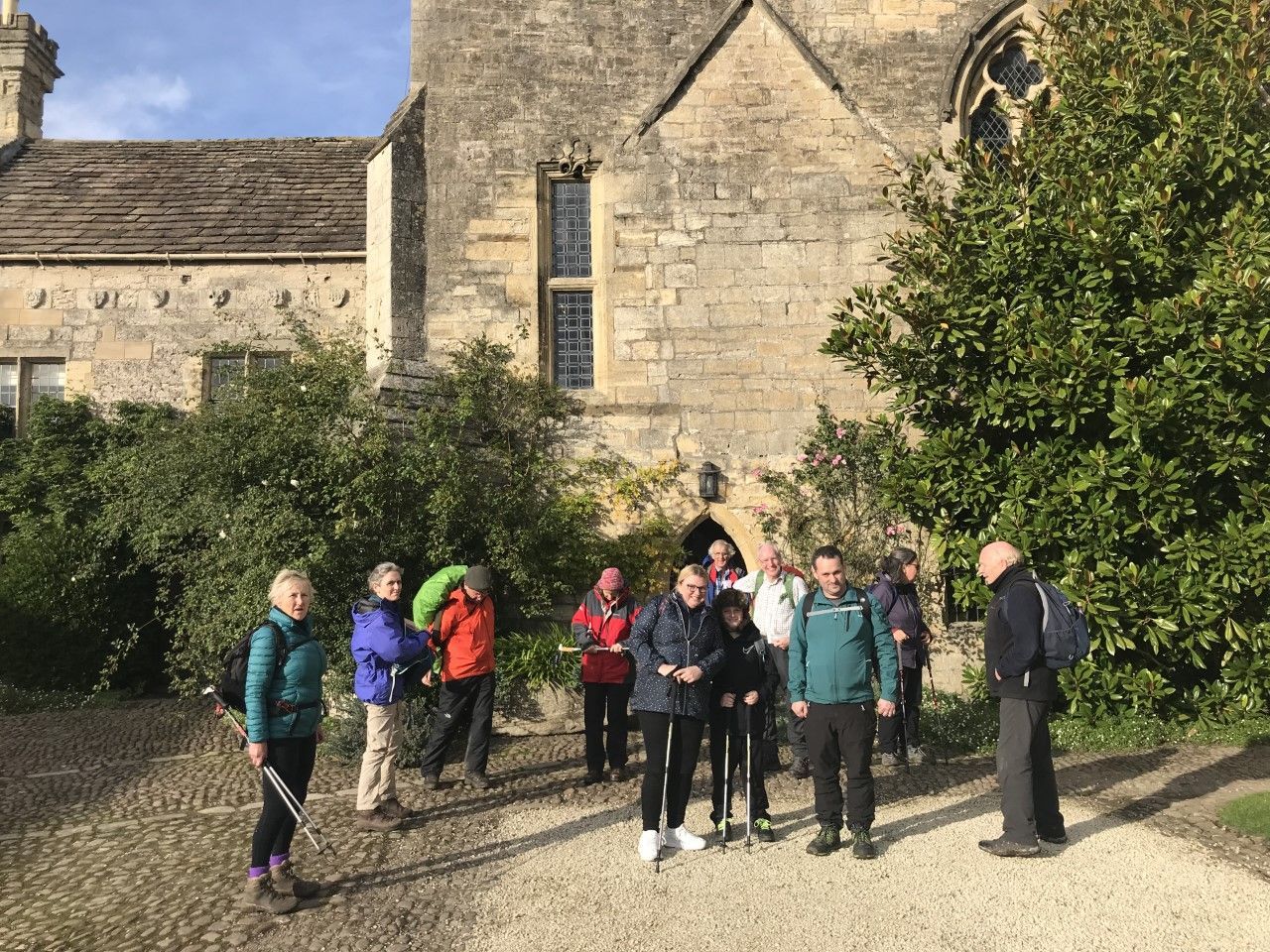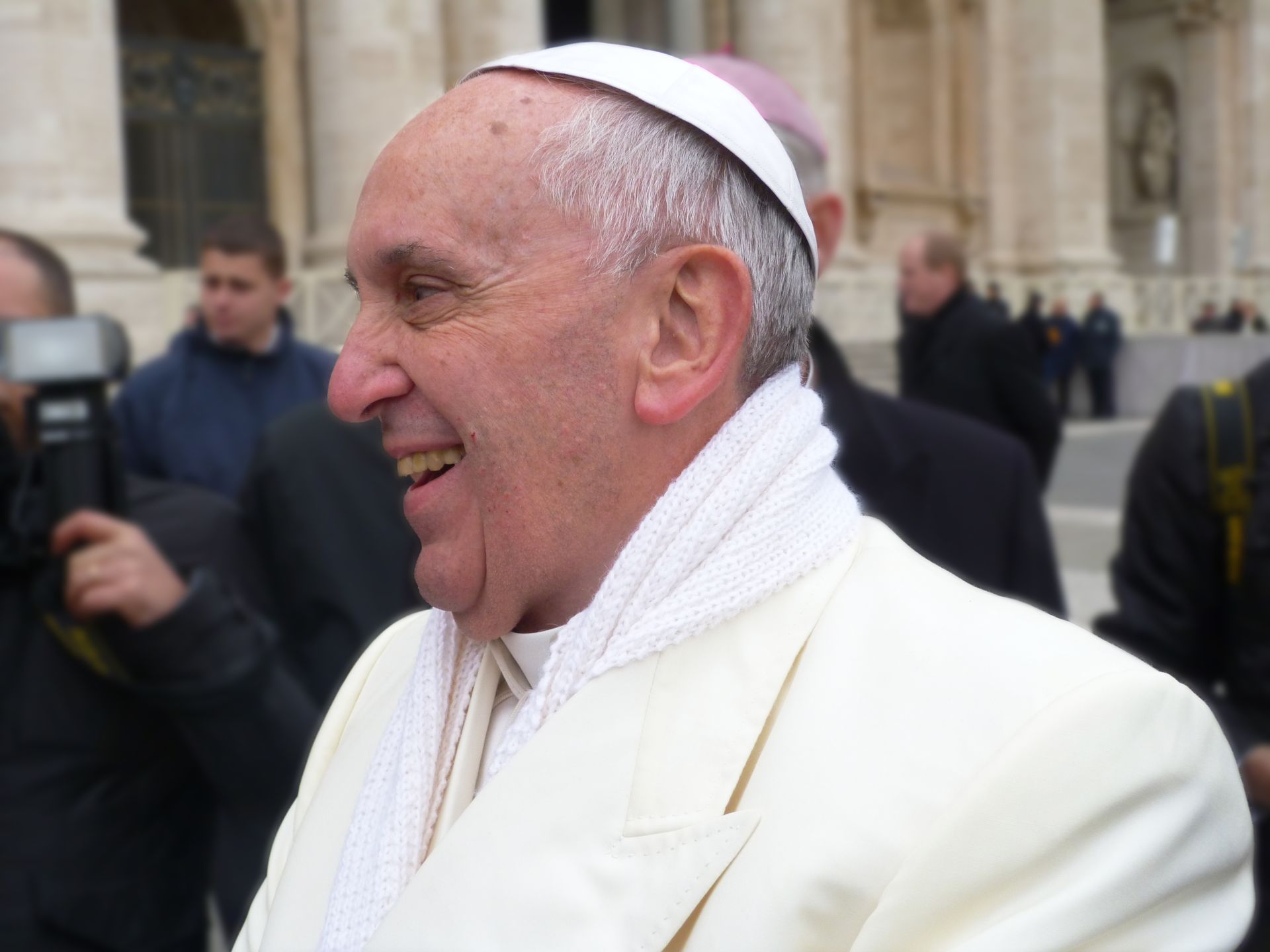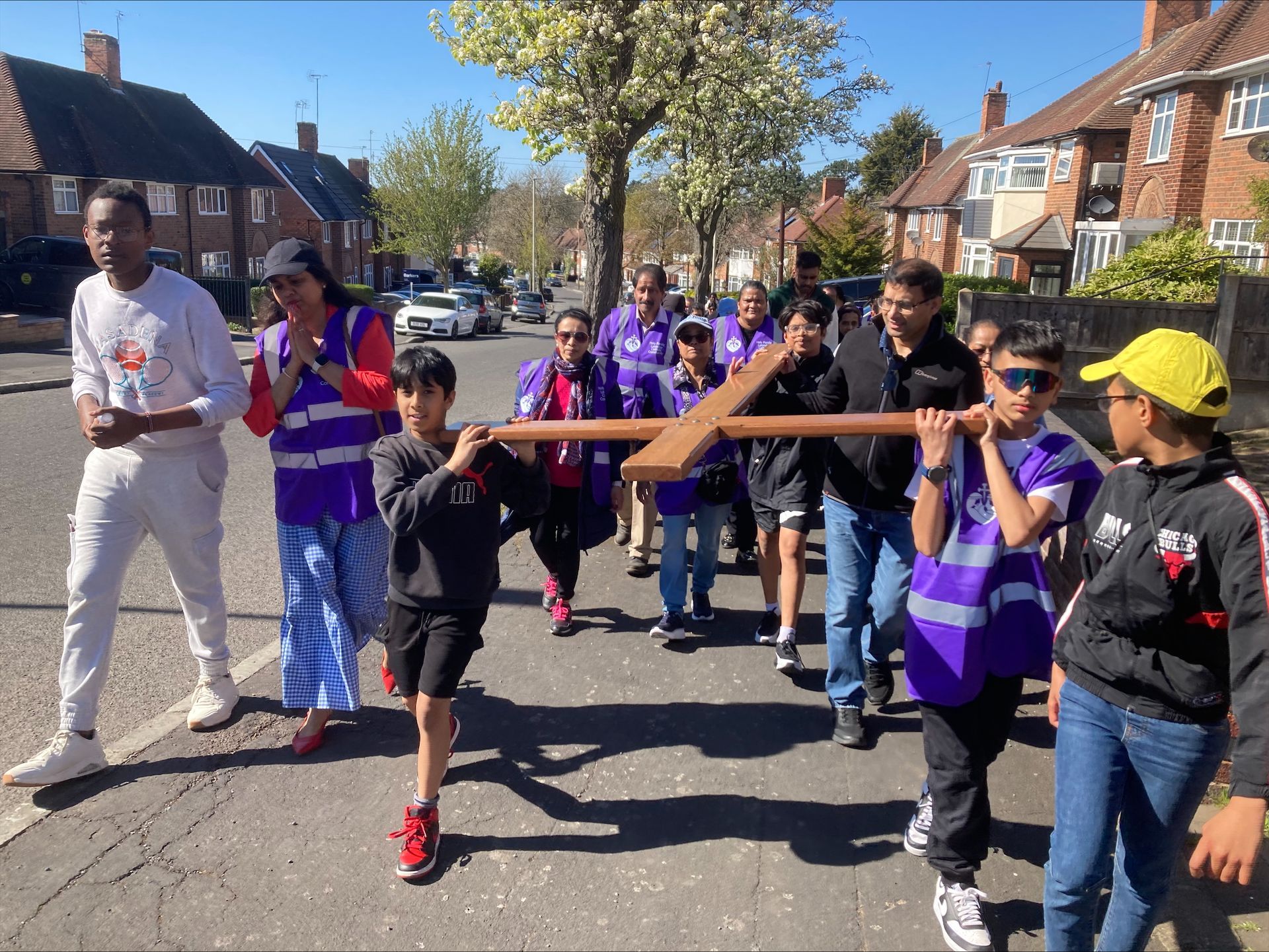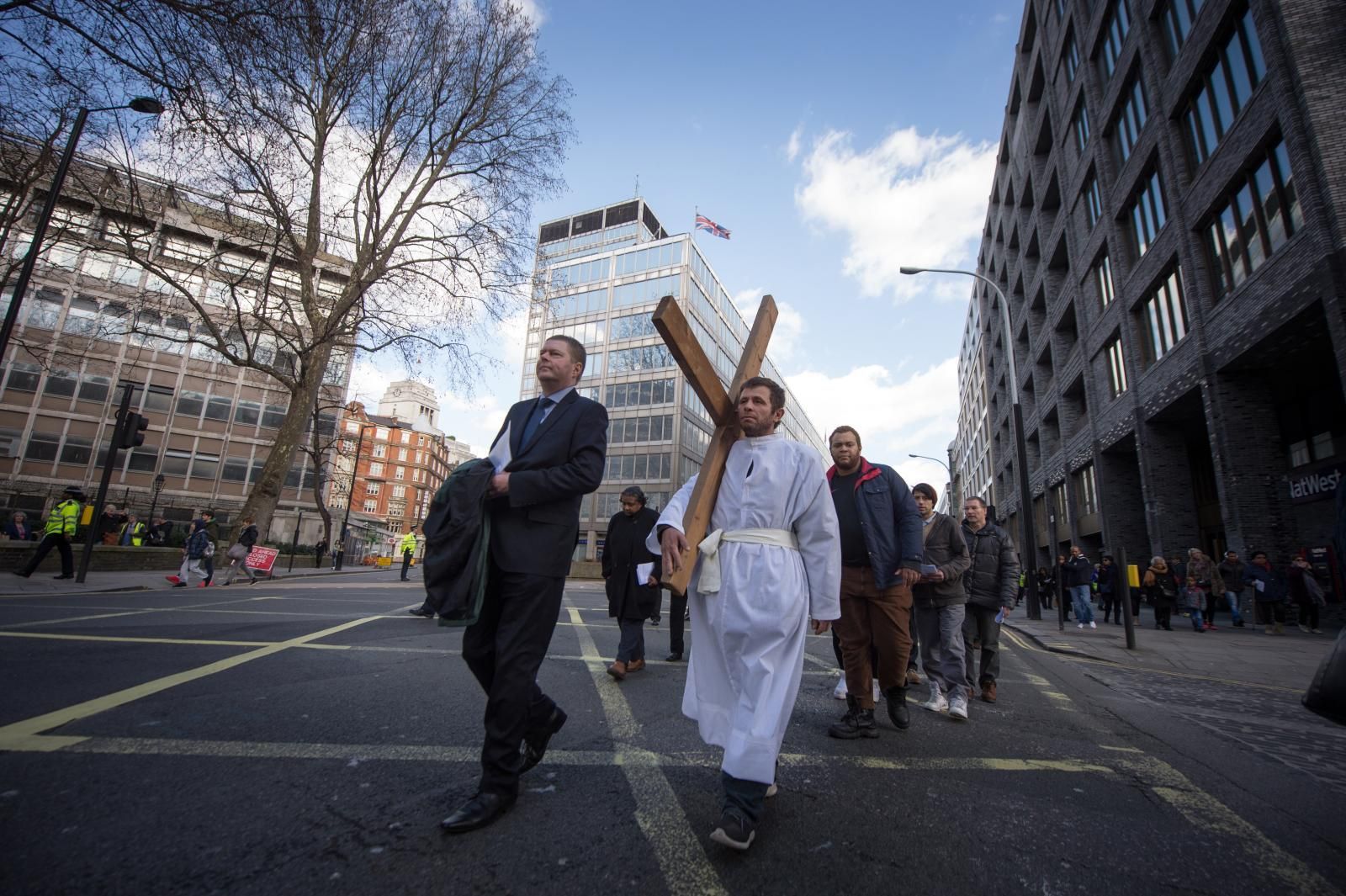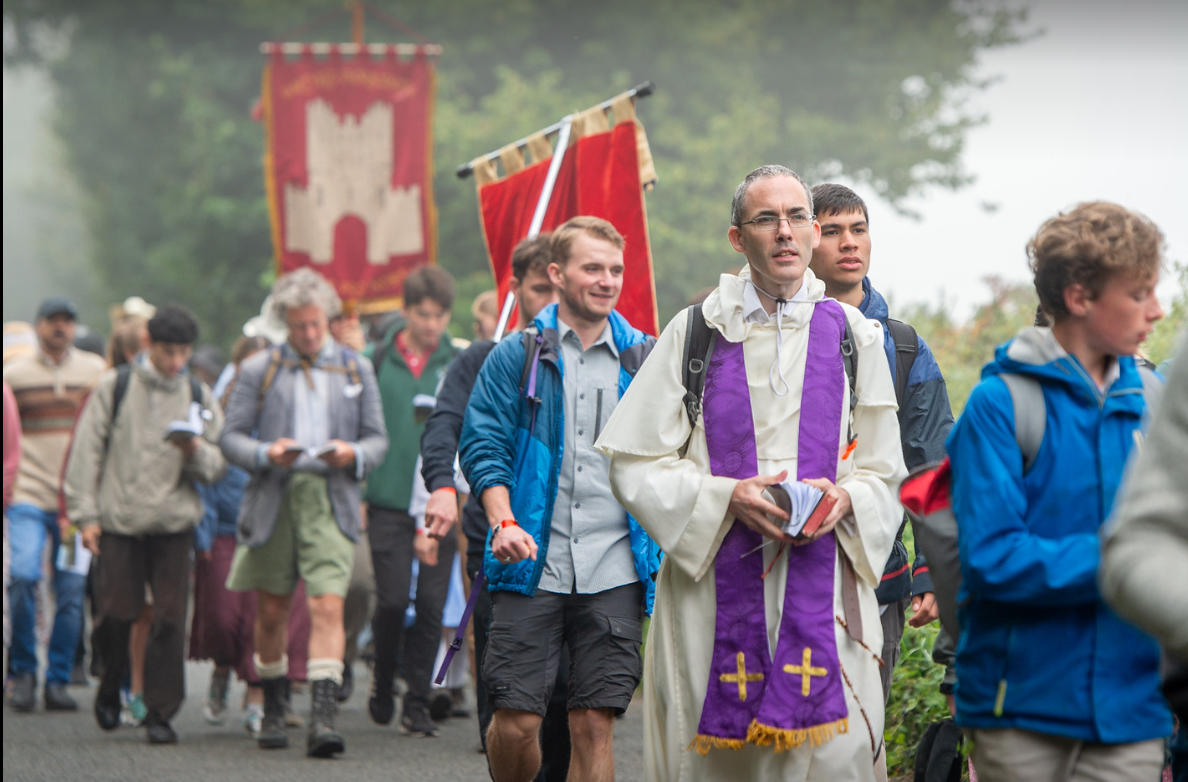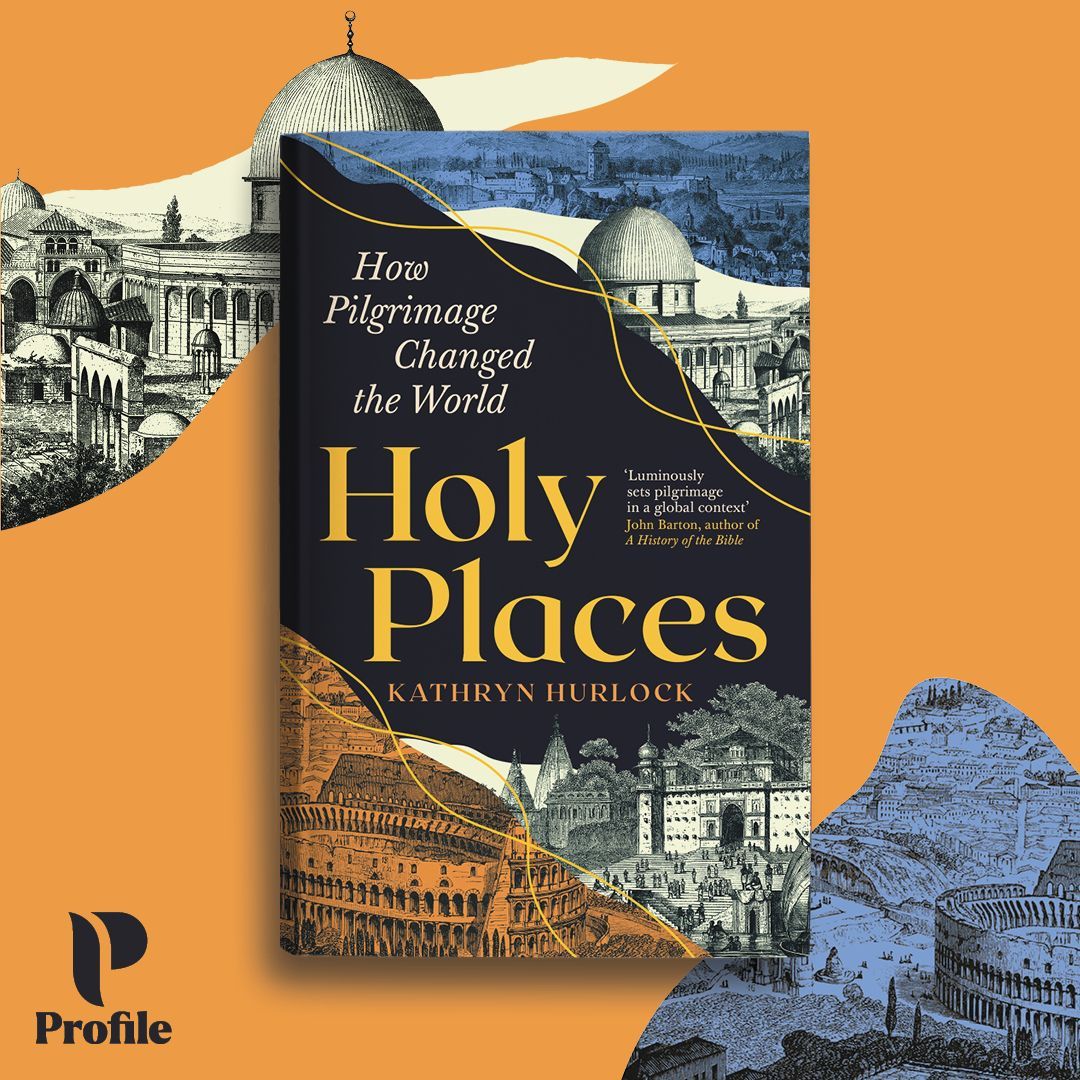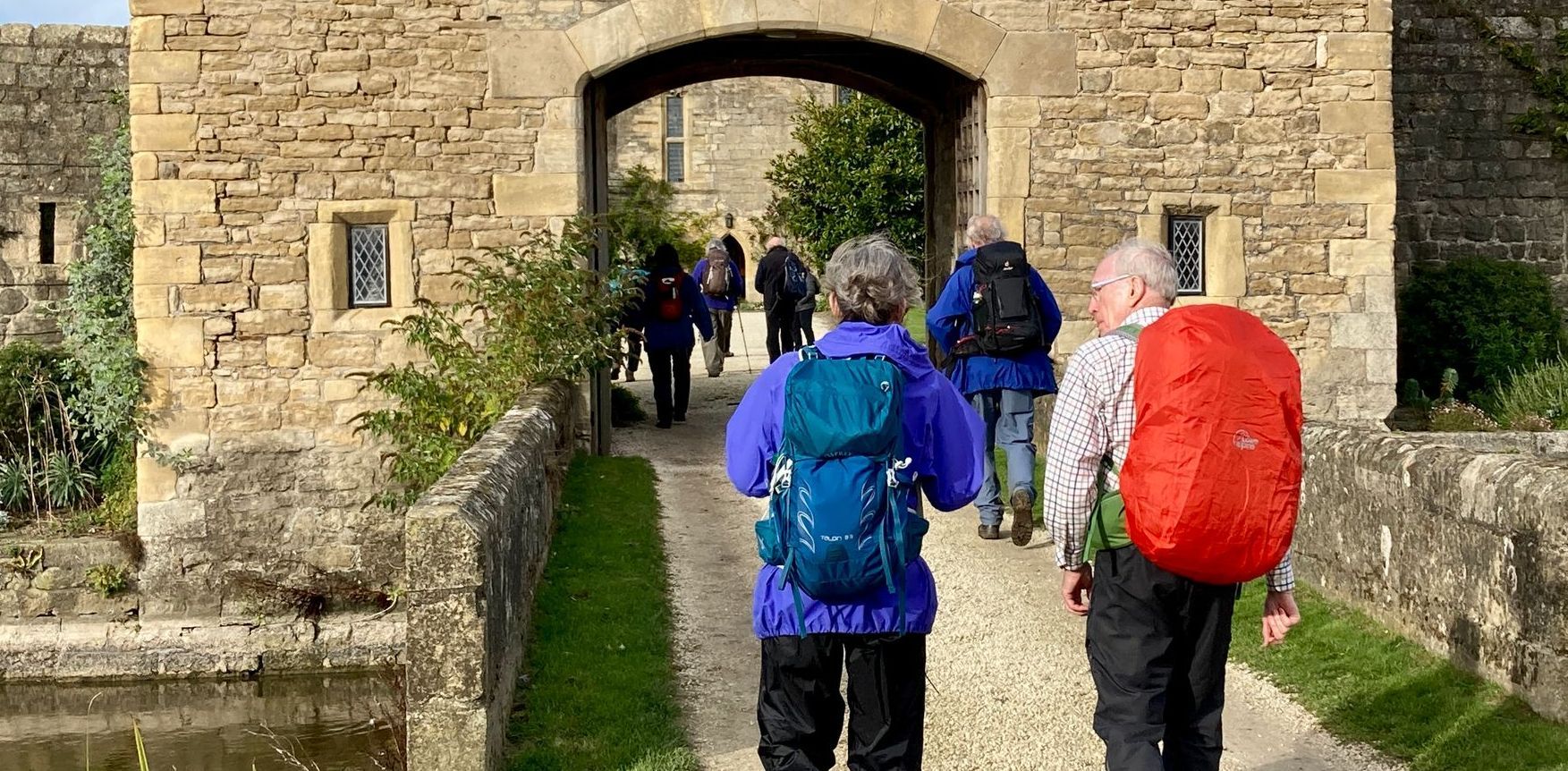Elijah: a pilgrim of hope
Image: Gmihail at Serbian Wikipedia, via Wikimedia Commons
Fr Jerome Oseagwina Ituah reflects on the Prophet Elijah's faith journey and how it links to the 2025 Jubilee, during which we are called to become 'pilgrims of hope'.
Introduction
In his Bull, Spes Non Confundit, declaring 2025 a jubilee year, Pope Francis emphasises the need for hope, renewal, and participation in spiritual pilgrimage. However, our pilgrimages will be meaningless unless they guide us towards social justice and revive hope by tackling societal issues, advocating for peace, caring for creation, aiding the poor, including migrants, and supporting the vulnerable. The Pope also calls for reconciliation and forgiveness as a central aspect of the pilgrim’s spiritual renewal and a reflection of God’s abundant mercy.
A pilgrim is someone who travels or undertakes a long journey to a sacred or religious place as an act of devotion. Pilgrimages are ancient practices common to many cultures and religions. People journey to specific sites of significant spiritual importance to them. Christian pilgrims visit places such as Jerusalem, Rome, and Lourdes in France, as well as Fatima in Portugal, while Muslim pilgrims go to Mecca for Hajj - one of the five pillars of Islam, required at least once in a lifetime for all Muslims who are financially and physically able to undertake such a pilgrimage. Adherents of Hinduism and Buddhism also make pilgrimages to Varanasi on the Ganges River and Bodh Gaya in India respectively.
Jesus undertook religious pilgrimages to Jerusalem. His parents brought him to Jerusalem for the Passover when he was 12 years old (cf. Luke 2:41-50), and he travelled there for the Feast of Tabernacles (cf. Jn 7:10-14). However, Jesus’ entire life can metaphorically be seen as a pilgrimage, from his birth culminating in his final journey to Jerusalem to fulfil the mission of his passion, death, resurrection, and ascension. Jesus, therefore, offers us another perspective on pilgrimages as a spiritual journey towards our eternal destiny (cf. Phil 3:20; Rev 21:3-4). While we undertake physical pilgrimages on earth, the ultimate goal is to unite us with God, whose presence is felt at those unique pilgrimage sites.
Our earthly journey can be fraught with challenges and disappointments. Each pilgrimage should inspire us to persevere until our final journey back to our heavenly homeland.
The Pilgrimage of Elijah
The narrative of Elijah (1 Kings 17 to 2 Kings 2) reflects a pilgrimage of faith. Introduced as a Tishbite, Elijah declares a drought to Ahab and then embarks on a pilgrimage to the brook Cherith, where God sustains him through ravens and the brook's water (1 Kgs 17:2-7). When the brook dries, Elijah begins another journey to Zarephath, relying on God’s word that a widow will care for him. Despite her dire circumstances, God multiplies the widow’s flour and oil, emphasising Elijah’s trust in divine providence.
Elijah’s journey to Mount Carmel illustrates the spiritual essence of pilgrimages: deepening faith and guiding others to God. By confronting Ahab and the prophets of Baal, Elijah challenges Israel's apostasy and restores faith through a dramatic demonstration of God’s power (1 Kings 18). Pilgrimages foster reconciliation and a renewed relationship with God, as evidenced when Israel confesses, “The Lord, he is God” (1 Kings 18:39).
The pilgrim’s path is not without hardship. After defeating Baal’s prophets, Jezebel threatens Elijah, driving him into despair. Fleeing into the wilderness, Elijah prays for death but finds divine solace through an angel who provides food and water (1 Kgs 19:4-8). Strengthened, Elijah travels to Mount Horeb, where he experiences God, not in fire, earthquake, or wind, but in a gentle whisper (1 Kgs 19:12-13).
After the divine encounter on Mount Horeb, God instructs Elijah to return to his mission and address specific life situations, having been empowered during his pilgrimage. Elijah returns to choose his successor, Elisha (cf. 1 Kgs 19:19-21). He also must confront King Ahab and Queen Jezebel, who had taken the life of Naboth the Jezreelite and seized his vineyard (cf. 1 Kgs 21). Elijah, the pilgrim, fights for and defends the rights of the vulnerable and poor in society.
Elijah’s pilgrimage culminates in his ascent to heaven (2 Kgs 2:1-11), accompanied by Elisha. Pilgrimages provide opportunities for spiritual requests, as Elisha demonstrates by seeking a double portion of Elijah’s spirit (2 Kgs 2:9). Elijah’s ultimate journey symbolises the final pilgrimage of every human being towards union with God. His life highlights faith, obedience, and reliance on divine providence, reminding us that earthly pilgrimages prepare us for our heavenly journey.
The Example of Elijah as a Pilgrim of Hope for Us Today
Pope Francis emphasises two vital goals of pilgrimages during the jubilee year: addressing social issues and renewing our spiritual relationship with God. Elijah's journeys from the brook Cherith to his ascent to heaven provide hope to every Christian pilgrim, whether embarking on a physical pilgrimage to religious sites, navigating the challenges of life’s journey, or seeking to deepen one’s spiritual connection with God. Elijah imparts valuable lessons for us during this jubilee year.
1. Pilgrimage is a leap of faith. Elijah teaches us to rely on God for every pilgrimage and every situation in life. God fed Elijah at the brook Cherith, through the widow of Zarephath, and by an angel. All three episodes were instances when the prophet had no hope of obtaining food or water. Elijah went in faith to where the voice of God directed him, hopeful that God would supply his needs according to His riches in glory (cf. Phil 4:19). As pilgrims, we must lay our cares and worries at the feet of the Lord. When undertaking physical pilgrimages, we should not be overly concerned about what we will eat or how comfortable the accommodation will be. We must trust in God’s providence and support.
2. Reconciliation with God. Every spiritual pilgrimage aims to deepen one’s spiritual life, particularly during moments of doubt regarding our faith. The people of Israel fluctuated between the worship of Baal and the true God. Elijah invited the people to undertake a pilgrimage on Mount Carmel to restore their faith and hope in God. Pilgrimages serve as places and opportunities for reconciling with God and seeking forgiveness. Pope Francis encourages us to stand firm in our faith and rekindle people’s hope in God as we embark on our jubilee year pilgrimage. We can achieve this by motivating people to engage in prayerful pilgrimages during the jubilee year, guiding them to locations where they can renew their faith and become beacons of hope for others upon their return from the pilgrimage. Above all, we can assist individuals in reconciling with God and seeking forgiveness for past failings, much like Elijah sought God’s guidance during his pilgrimage to Mount Horeb.
3. Advocating for the Poor and Vulnerable. Elijah restored hope to those in need during his time by advocating for their struggles and confronting the injustices they faced. He brought comfort to the impoverished widow of Zarephath and her son, who were gathering sticks to prepare their last meal before resigning themselves to death. Elijah’s presence provided them with food and renewed life. Our pilgrimage should compel us to take action, assisting the migrants and vulnerable individuals among us. Additionally, Elijah boldly confronted King Ahab and Queen Jezebel regarding the wrongful execution of Naboth and the appropriation of his land. Pope Francis’ message calls us, like Elijah, to advocate for the impoverished and vulnerable individuals within our communities. In doing so, we offer them hope for a better future.
4. Hope in Despair. Elijah was defeated by Jezebel's message. He ran for his life and was ready to end his mission and life. The great prophet fell into despair and was traumatised. He grappled with his human weakness and frailty. Yet, Elijah teaches us that there is hope in every calamity and adversity. He understood he could not take his life. God responded to Elijah’s despair, giving him succour, courage, and consolation. He fed him and bestowed strength to continue the journey. There is always light at the end of the tunnel. Our disappointments and challenges must not overwhelm us, not even tempt us to take our lives. It is not worth it. We can trust in God. He will undoubtedly come in unexpected ways. There is hope for us in our weaknesses and struggles in life. Our pilgrimage can be a journey of self-discovery or personal growth.
5. Hope for a Double Portion. Elisha’s determination to follow Elijah to the end revealed the gift of the double portion of Elijah’s spirit. Elijah hoped for eternal life and divine fulfilment, illustrating the continuity of hope between our earthly and heavenly lives. Elijah symbolises eschatological hope; at the end of our lives, we will return to God. Jesus' resurrection affirmed the Jewish belief that we do not need to ascend bodily like Elijah. We must pass through the experience of death to attain the hope of eternal life. We have a double portion, sharing in the life of Christ here on earth in anticipation of its fullness in heaven.
Elijah’s life as a pilgrim teaches us to embrace faith, trust in God, and advocate for justice. As pilgrims of hope, we are called to deepen our spiritual journey, inspire others, and address societal challenges. Like Elijah, we must defend our faith, offer hope, and work for a more just world. Every physical or spiritual pilgrimage ultimately leads us closer to God and our heavenly homeland.
Fr Jerome Oseagwina Ituah, is a Discalced Carmelite priest of the Anglo-Irish Province. He is the Sub-Prior of St. Joseph’s Carmelite Priory, Gerrards Cross and Promoter of Vocations and Young Adult Ministry for the Discalced Carmelites in the UK. He holds a Licentiate in Sacred Scriptures from the Pontifical Biblical Institute, Rome and currently doing a Doctorate in Biblical Theology in St. Mary’s University, Twickenham.
